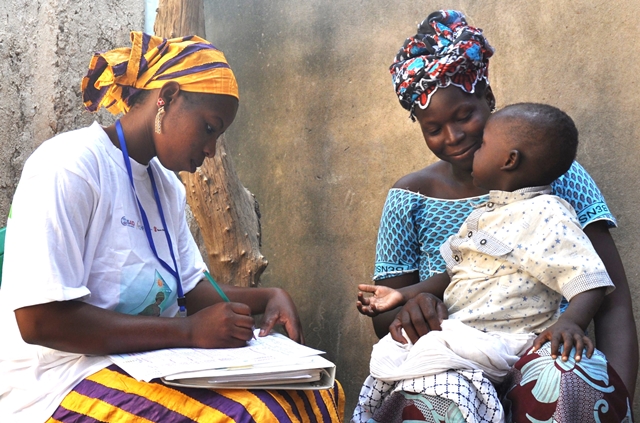4 Oct. 2022. A vaccine grown in genetically-altered algae, designed as a nasal-spray and edible drug, is shown to protect lab mice against parasite infections causing malaria. Researchers from the biotechnology company Lumen Bioscience Inc. in Seattle and University of Washington describe the vaccine and their findings in today’s issue of the journal NPJ Vaccines.
According to World Health Organization, malaria in 2020 affected some 241 million people worldwide leading to 627,000 deaths, with 95 percent of cases occurring in sub-Saharan Africa. Children under the age of five are particularly vulnerable. The disease is caused by infections from the Plasmodium parasite, transferred to humans by bites from female Anopheles mosquitoes. Current malaria vaccines are injected with syringes, and require refrigeration during transport and storage, which is difficult in parts of the world most affected by the disease.
Lumen Bioscience is a five year-old company developing biologic drugs with a process it says is simpler and less expensive than conventional techniques for both producers and consumers. Lumen Bio says it genetically engineers the blue-green algae spirulina to express therapeutic molecules, with the altered spirulina producing and storing the molecules inside their cells. The engineered algae cells are grown and produced into biomass from water, salt, carbon dioxide, and light, with the biomass then dried into a powder.
Complex shape-shifting organisms
The company says the therapeutic molecules are preserved inside surviving cell membranes, which allows the powder to be packed inside capsules, and taken as oral drugs. The capsules, says Lumen Bio, can be shipped and stored at room temperatures. Once swallowed, the capsules are protected against degradation in the stomach, and release their therapeutic payloads in the small intestine, where they neutralize the targets. In April 2022, Science & Enterprise reported on FDA clearance for a clinical trial of a Lumen Bio treatment for Clostridium difficile or C. difficile infections, often contracted in health care facilities.
Researchers from Lumen Bio and the lab of microbiologist Sean Murphy at University of Washington applied the Lumen process to produce a vaccine to protect against Plasmodium parasite infections. Murphy and colleagues study the Plasmodium parasite, noting that the shape-shifting organisms are complex and dangerous, with the ability to live in multiple environments in mosquitoes and humans. For this study, the team genetically altered spirulina cells to express virus-like particles with a Plasmodium protein antigen on their surface.
The researchers tested the algae-grown vaccine in lab mice as a nasal spray, with an edible booster fed to the mice. The team found the nasal spray followed by edible boosters are well tolerated by mice, and produce antibodies with the ability to neutralize Plasmodium proteins. The researchers also found female mice produce higher concentrations of anti-Plasmodium antibodies after the nasal spray and edible boosters, while male mice need an extra temperature-stable adjuvant to achieve similar antibody concentrations. In subsequent challenge tests against Plasmodium proteins delivered under the skin to simulate mosquito bites, the combination of nasal spray and edible booster protect female mice against infection, with the vaccines plus adjuvant protect male mice.
“Tremendous progress has been made in the field of recombinant malaria vaccines,” says Murphy in a Lumen Bioscience statement, “but real-world access remains challenging due to infrastructure and supply chain limitations and to cost sensitivity in most regions where malaria is endemic.” James Roberts, Lumen Bio’s chief scientist and co-author of the paper notes, “The use of edible spirulina as a malaria vaccine platform offers a new approach to vaccine development at scales, costs, and delivery that could greatly improve access compared with traditional vaccination approaches.”
More from Science & Enterprise:
- Trial Underway Assessing Gut Microbiome-Cancer Links
- Infographic – Tracking Global Monkeypox Spread
- Women’s Health Companies Partner on New Contraceptive
- Trial Shows Oral Covid-19 Vaccine Produces Antibodies
- Diagnostics Companies Partner on Monkeypox Test
We designed Science & Enterprise for busy readers including investors, researchers, entrepreneurs, and students. Except for a narrow cookies and privacy strip for first-time visitors, we have no pop-ups blocking the entire page, nor distracting animated GIF graphics. If you want to subscribe for daily email alerts, you can do that here, or find the link in the upper left-hand corner of the desktop page. The site is free, with no paywall. But, of course, donations are gratefully accepted.
* * *


 RSS - Posts
RSS - Posts
[…] Algae-Grown Non-Needle Malaria Vaccine in Preclinical Test […]